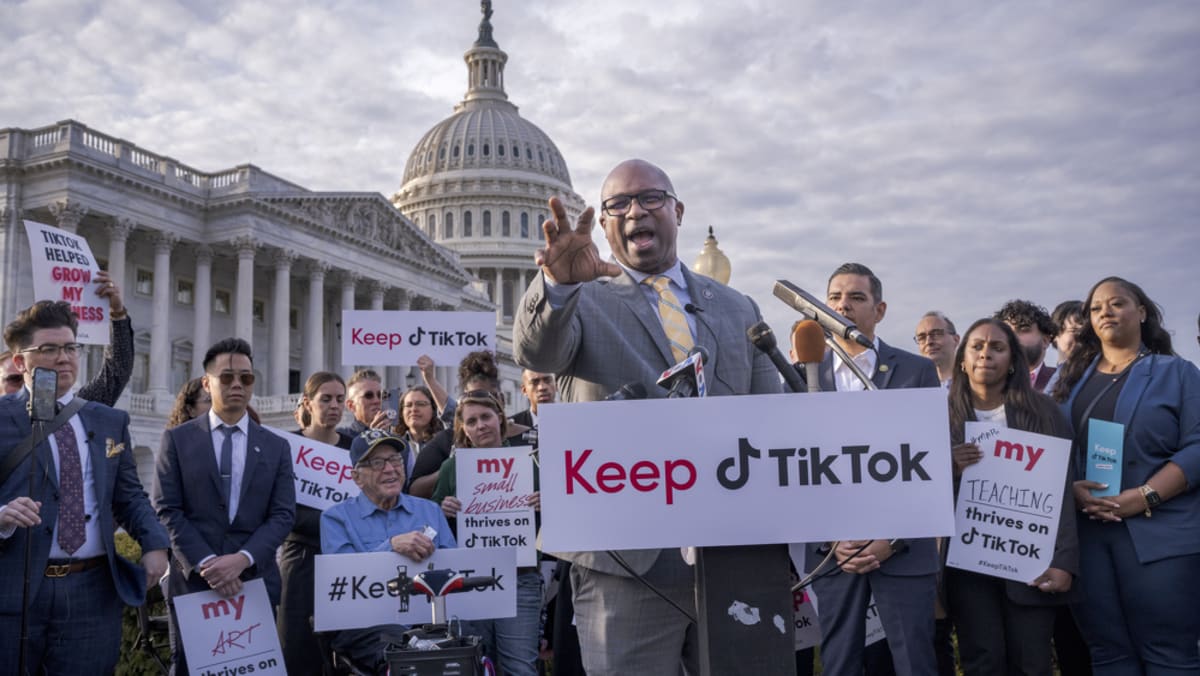US politicians on TikTok defend app’s reach to voters
“I’ve got to hand it to you,” said Rep. August Pfluger, R-Texas, as members questioned Chew over data security and harmful content. “You’ve actually done something that in the last three to four years has not happened except for the exception of maybe (Russian president) Vladimir Putin. You have unified Republicans and Democrats.”
While the hearing made plain that lawmakers view TikTok as a threat, their lack of first-hand experience with the app was apparent at times. Some made inaccurate and head-scratching comments, seemingly not understanding how TikTok connects to a home Wi-Fi router or how it moderates illicit content.
Rep. Mark Pocan, D-Wis., who is active on the app and opposes a nationwide ban, called the hearing “cringeworthy”.
“It was just so painful to watch,” he told the AP on Friday (Mar 31). “And it just shows the real problem is Congress doesn’t have a lot of expertise, whether it be social media or, for that matter, more importantly, technology.”
Garcia, who said he uses TikTok more as a consumer, said most of his colleagues who are proposing a nationwide ban told him they had never used the app. “It gets hard to understand if you’re not actually on it,” the freshman Democrat said. “And at the end of the day, a lot of TikTok is harmless people dancing and funny videos.”
“It’s also incredibly rich educational content, and learning how to bake and learning about the political process,” he said.
Rep. Jamaal Bowman, D-N.Y., who has more than 180,000 followers on the app, held a news conference with TikTok influencers before the hearing. He accused Republicans of pushing a ban on TikTok for political reasons.
“There are 150 million people on TikTok and we are more connected to them than Republicans are,” Bowman said. “So for them, it’s all about fear-mongering and power. It’s not TikTok, because, again, we’ve looked the other way and allowed Facebook and other platforms to do similar things.”
Critics of TikTok in Congress say their opposition is rooted in national security, not politics. TikTok is a wholly owned subsidiary of Chinese technology firm ByteDance, which appoints its executives. They worry Chinese authorities could force ByteDance to hand over TikTok data on American users, effectively turning the app into a data-mining operation for a foreign power. The company insists it is taking steps to make sure that can never happen.
“The basic approach that we’re following is to make it physically impossible for any government, including the Chinese government, to get access to US user data,” general counsel Erich Andersen said during an interview with the AP on Friday at a cybersecurity conference in California.
TikTok has been emphasising a US$1.5 billion proposal to store all US user data on servers owned and maintained by the software giant Oracle. Access to US data would be managed by US employees through a separate entity run independently of ByteDance and monitored by outside observers.
Republican Sen. Thom Tillis of North Carolina took the unusual step of releasing a public statement urging all members of Congress to stop using TikTok, including from his home state – seemingly a jab at Jackson, who is one of the more active members with more than 1.8 million followers.
“I was just saying if we’re having a discussion about TikTok then I think we ought to at least reduce the pull factor by elected officials who can simply come off of it,” Tillis said this week, when asked about his statement. “I don’t have a TikTok account. So that was an easy separation for me.”
For all the latest world News Click Here

